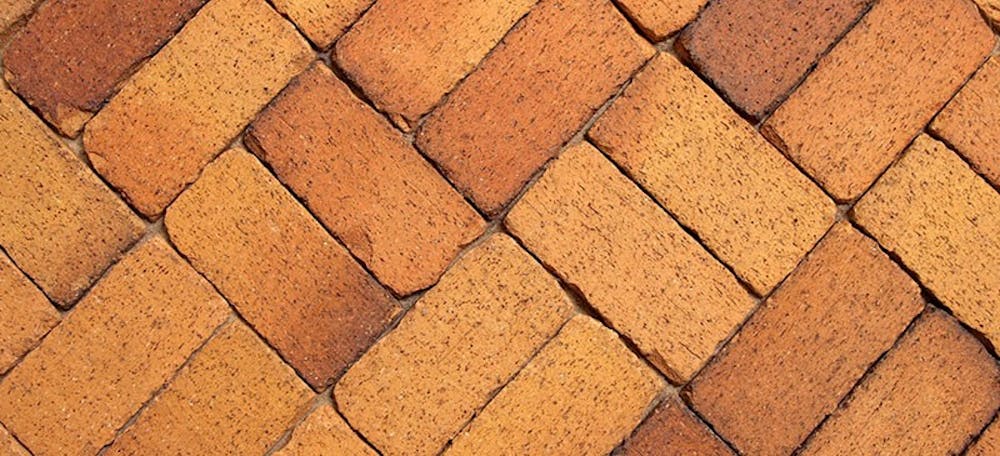North Carolina State University recently had a “Think Outside the Brick” competition. This initiative’s name played on the fact that NCSU students are so surrounded by brick constructs that they pay them no more attention than the air they breathe. Much like our neighbors just down I-40, we at Elon are surrounded by buildings and pathways made of brickwork. Unlike them, however, we cannot stop thinking about these little pieces of clay masonry. “We” here means students, staff, alumni, faculty and all of our community members. Seniors often choose to take one with them when they graduate, University Advancement engraves them and they are as much a part of our cultural subconscious as our increasingly domesticated squirrel population. For those who think I am exaggerating, www.elon.edu/bricks is a real thing (fundraising plug — seriously order one, more endowment is a good thing for all of us). In summary, it is fair to say that we, as a population, exhibit an abnormal fascination with our bricks.
You can find “Steal a Brick” on The Pendulum’s Elon Bucket List and brick removal is a staple sound bite included in unofficial campus tours for prospective students. I even referenced this tradition in a letter designed to welcome the Class of 2017 to campus in The Pendulum's Move-In edition. This was wrong of me, and I am concerned about the effect of these comments — but why? It is reasonable to ask what the real impact of taking a brick is. To put some numbers around this tradition, last year about 1,600 bricks were taken from our walking paths. Based on the amount of time our groundskeeping team — the people who keep our campus beautiful and to the standards of a botanical garden — spend replacing each brick, 1,600 stolen bricks amount to about 400 work hours dedicated to repairing the damage done to our walkways when bricks are taken. That’s 10 weeks of a groundskeeper's time spent replacing bricks. This fact is what matters. It is not that Elon cannot afford the bricks, though it does deprive other projects of funding. It also is not that our friends in Physical Plant are incapable of keeping up with the damage, though it does distract them from their many other responsibilities. It is simply that a brick stolen is a burden added to another member of our community. It makes someone’s day just a little bit harder.
I have no inclination to tell you which of Elon’s traditions you should feel are worthy of survival. But I will say that I have taken part in most of the traditions we have here, from Festivus to Sportsfest, and I have found whenever I partake in one, I get the feeling that I am truly helping to perpetuate something. That is our greatest contribution and the most beautiful part of being an Elon student. Elon is changing around us so much that we are, more than students at most colleges, forging lasting traditions and making meaningful contributions, no matter how small they may seem. All that I ask of you is that you ask yourself if the tradition you are perpetuating is one you really want to survive, and that it adds to, rather than detracts from, the experience of everyone in our community.


